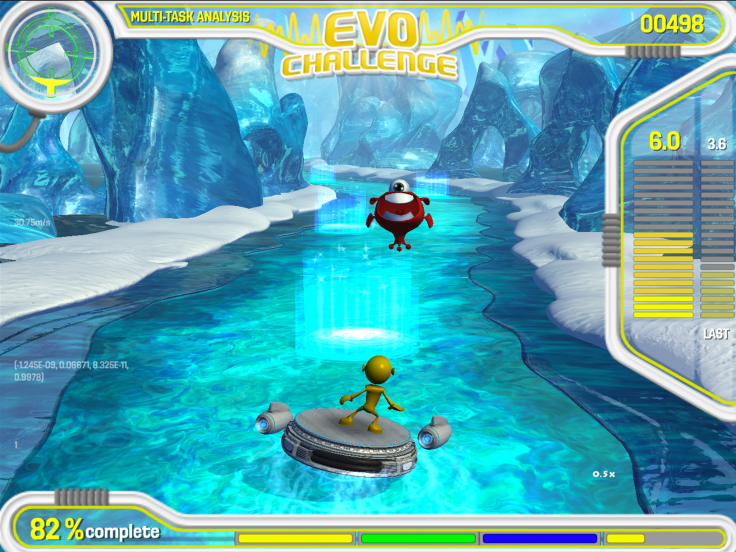Project: EVO, The First Prescription-Strength Brain Game, Aims To Help Kids With ADHD

There are plenty of myths and misconceptions out there about attention deficit hyperactivity disorder (ADHD), but there is one thing we know for sure: ADHD is one of the most common childhood disorders. It also persists through adolescence and adulthood, causing difficulty with staying focused and controlling behavior, and hyperactivity. While doctors will currently prescribe Ritalin and other similar drugs, researchers are beginning to discover that computer games ease ADHD symptoms in kids. So, it was only a matter of time before one of them created a “prescription-strength” video game designed specifically for kids with ADHD.
Project: Evo is being developed under the leadership of Eddie Martucci, chief executive officer of Akili Interactive Labs in Boston. Made for mobile devices, the game’s purpose is to act as a daily therapy for brain disorders like ADHD. And the developers are currently seeking approval from the Food and Drug Administration (FDA) to make it the first ever video game that can be prescribed as a therapy.
The trick to turning a therapy into something a little more kid-friendly is to turn it into a video game, according to Akili’s website. Project: Evo aims to help kids concentrate by thrusting them into a world where they have to make split-second decisions. This engages the brain and trains it to tune out distractions, thus allowing a child to focus completely on the task. These tasks, for example, include guiding an alien spacecraft through a canyon. To move the ship, players need to choose the red fish that appear on the screen while ignoring blue birds and green fish that also appear. Project: Evo detects the player’s skill level, and as the game progresses, it gradually increases the speed of the ship and the number of objects the player must hit — adding blue birds to the mix, for example.
Thus far, Akili has received $10 million in funding from backers like PureTech — a science-driven health care company — and pharmaceutical giant Shire. Another pharmaceutical company, Pfizer, also used Project: Evo in a 100-person trial in 2014 to determine whether Evo could identify patients with Alzheimer’s disease. Those results are still pending.
The number of children with ADHD ranges from an estimated 5 percent to 11 percent. As effective as medications like Ritalin and Adderall can be for some cases of ADHD, they can still cause side effects that affect a child as they grow, such as nervousness, appetite suppression, insomnia, and even increased blood pressure and heart rate. If successful, however, rather than handing out a prescription for a cocktail of different ADHD drugs, doctors will be able to tell patients to download Project: Evo, and then call them up in the morning to see how they did.



























